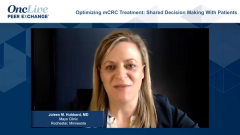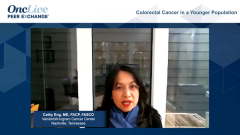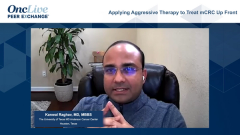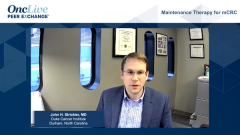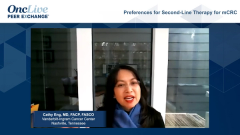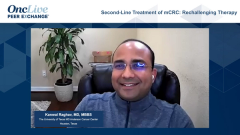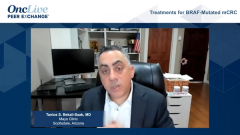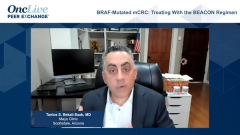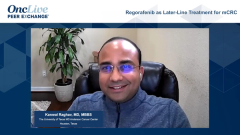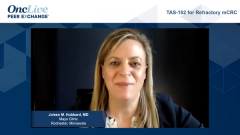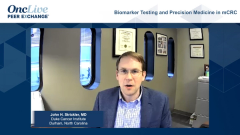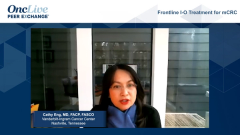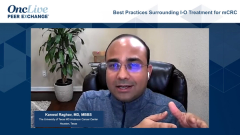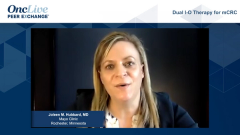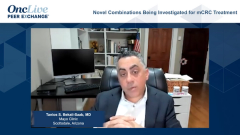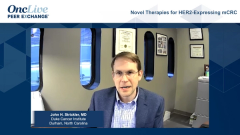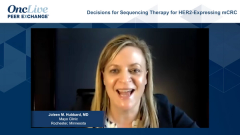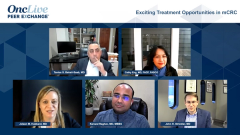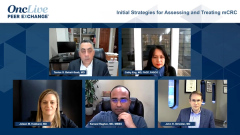
Applying Aggressive Therapy to Treat mCRC Up Front
The rationale for treating select patients with metastatic colorectal cancer with intensive therapy in the first-line setting vs waiting until disease progression.
Episodes in this series

Tanjos S. Bekaii-Saab, MD: I want to go back to your discussion about intensive therapy. Are younger patients the right patients who we need to intensify therapy?
Kanwal Raghav, MD, MBBS: That’s a very interesting observation. With BRAF, for example, it’s a group analysis of TRIBE. We thought that BRAF would benefit more from more intensive therapy, but when you look at the subgroup analysis of TRIBE2, it doesn’t pan out much when you increase the number of patients.
Cathy Eng, MD, FACP, FASCO: I have to chime in, TRIBE2 was not powered for BRAF.
Kanwal Raghav, MD, MBBS: None of these subgroups was powered for BRAF, but the effect size that you see does not translate across the board. If somebody has poor biology, BRAF is an exception because we know these patients tend to be chemotherapy-refractory. All you’re doing with triplet cytotoxic is just giving another chemotherapy drug. It may not be true for young patients, but the data show that younger individuals may have poorer outcomes compared with garden variety colon cancer.
Before deciding, I usually look at disease characteristics, rather than age, to decide whether I need to give this. A patient who has small lung disease, even if they are young, may not be appropriate candidates for a triplet cytotoxic coming from shared decision-making principles. On the other hand, for somebody with peritoneal carcinomatosis, where we know that it did progress and it’s hard to predict that they would get into trouble, those are patients I like to be really aggressive with up front. Once they get into the cycle of malignant bowel obstructions, it’s difficult to reverse it.
The liver is a different group. In the resectable population, we want to be careful because even though there was an increase in response rate, the resection rates were not high. Our surgeons are afraid of steatohepatitis that comes from irinotecan. It’s more than just 1 thing. Younger individuals are more likely to get a more aggressive treatment.
Tanjos S. Bekaii-Saab, MD: Is that true for your patients, Joleen? You see quite a few in your clinic as well.
Cathy Eng, MD, FACP, FASCO: I have been seeing an increase in young adults with colorectal cancer. I try to offer them more aggressive therapy because ihey’re more likely to tolerate it. They’re more likely to have young children. They want to maximize the amount of time that they have. I do try to get my younger patients to be a little more on the aggressive side, in the hope that we can control their disease better for a longer period of time.
Transcript Edited for Clarity


